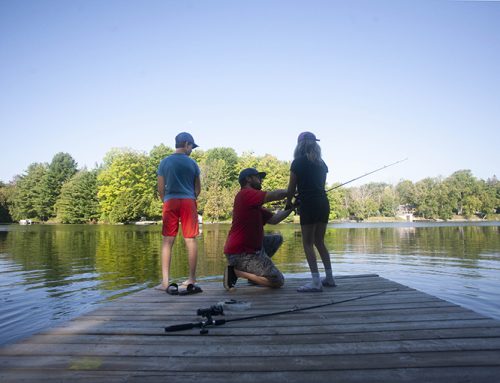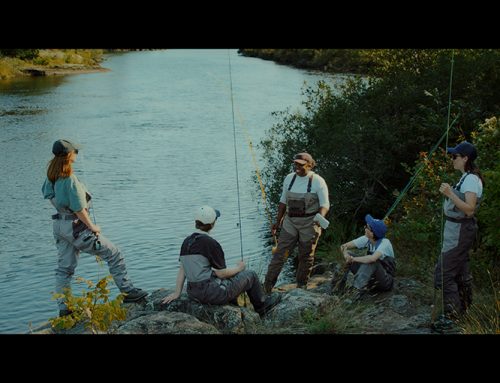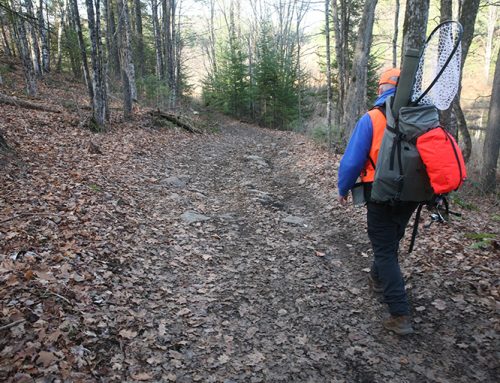For the first time since her recent attack by a black bear, Lynn O’Connor, the 53-year-old woman from Peterborough, recounted the traumatic event in an on-camera interview with local media. The incident occurred on Sept.29 while she was walking her dogs around the family cottage near Havelock.
“I was screaming the whole time. I didn’t think my husband was going to hear me,” she said in the interview, still visibly shaken.
Related Reads:
The O’Connor family has been rattled by the event and doesn’t plan to go back to the cottage anytime soon.
Attacks on the Rise
In an interview with CBC, O’Connor said, “I didn’t provoke it in any way. It just started to bite me and I thought it was going to kill me.”
Although bear attacks on people are rare, news of these types of attacks seem to be getting more common. “Encounters between bears and people — including but not limited to attacks — seem to be on the rise,” said Mark Ryckman, senior wildlife biologist with the Ontario Federation of Anglers and Hunters. “Increasing bear populations in Ontario, as well as expansion of human activities into bear habitat are certainly responsible for some of the increase. The availability of natural foods is likely the most important determinant of bear-human encounters; in years where natural foods are scarce, bears need to seek out other food sources.”
Ryckman adds that pet owners need to be aware of the role dogs play in bear encounters. “Dogs running at large in the bush have been responsible for drawing black bears back to their owners, often resulting in an encounter,” he said.
There are other safety precautions people can take while in the woods that might deter a meet-up with a black bear, but Ryckman says there will always be bear encounters in areas where humans and bears overlap. Better wildlife management is what he would like to see.
“The MNR tells us that we are harvesting just as many bears now in the fall season as were being harvested prior to the cancellation of the spring hunt. While this is true, it ignores the importance of the timing of the harvest. A spring bear hunt would reduce the abundance and distribution of bears prior to the summer and fall months when the vast majority of encounters occur. It would also keep bear populations more in line with the availability of natural foods.”
Jolanta Kowalski, media relations officer with the Ministry of Natural Resources (MNR) told CHEX TV that the MNR has heard concerns from some communities and it is taking another look at its wildlife management practices.






I live in the area of this attack. And have talked with others in this area about this. Most that I have talked to agree that fall is a time when you just don’t walk in the woods, unless you have protection. We live an are surrounded with hundreds of acres of woods. Of coarse there are bears in there. We love how rustic the area is. And if we are going to live in an area like this, were you have to realize there is wildlife of all kinds , including those that could hurt you. Then you must educate yourself on how to “avoid” these situations. Fall is when bears are most dangerous. They are foraging to fatten up for winter. And they are getting ready for hibernation. You must respect this if you are going to live in their territory. I feel bad for the woman that was attacked, and hope she has no lasting affects from the attack. But I also feel bad for the bears that now people are talking about “finding a solution to” including either relocating them (we live in the woods, where do you think they should be relocated to?). or opening up the spring hunt again, to reduce the amount of bears. Really? I have only seen one bear in 8 years. This woman had never seen a bear in the 5 years she has owned the property here. How few bears do you want?. The solution is , stay out of the woods in the fall. And if you must walk in the woods, at any time of the year. You should carry protection. Bear blast, and an air horn, may help. And make lots of noise when you are walking along so they will leave the area before you arrive. They normally don’t want to encounter you anymore than you want to encounter them. And keep your dogs under control, if they startle the bear , that would prompt an attack. So hoping everyone tries to keep safe , and in turn it keeps the bears safe. Just my views on the bears.